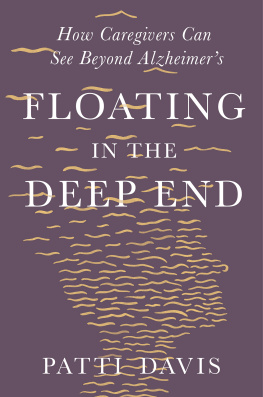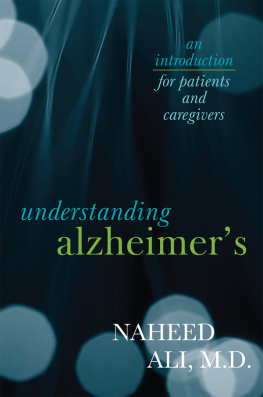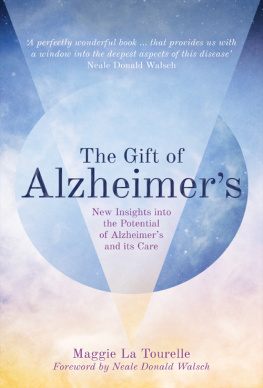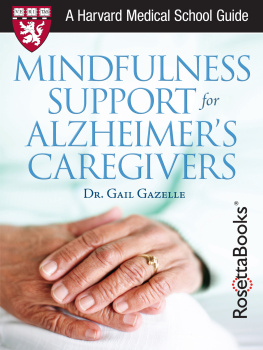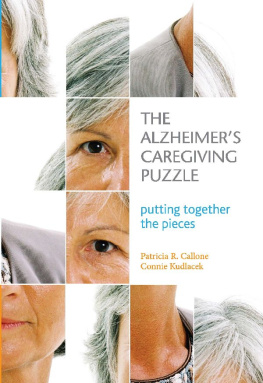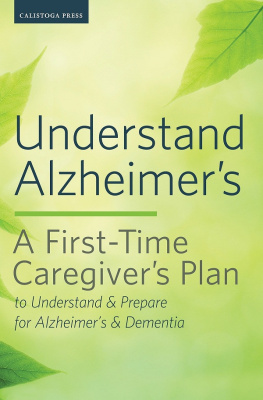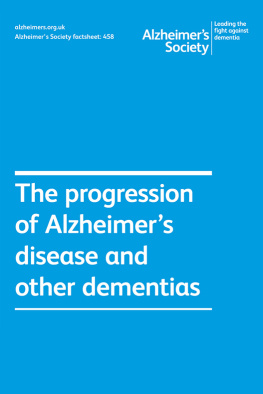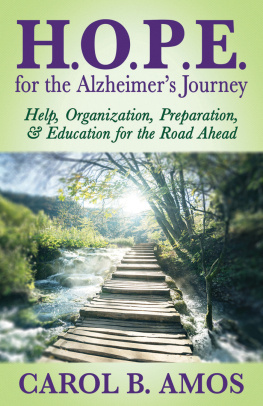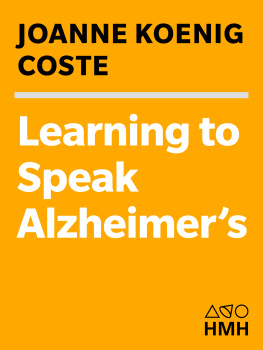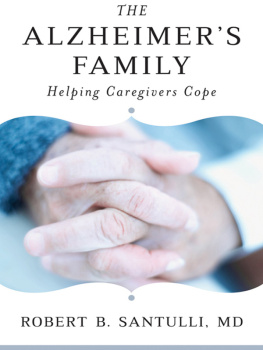Patti Davis - Floating in the Deep End: How Caregivers Can See Beyond Alzheimers
Here you can read online Patti Davis - Floating in the Deep End: How Caregivers Can See Beyond Alzheimers full text of the book (entire story) in english for free. Download pdf and epub, get meaning, cover and reviews about this ebook. year: 2021, publisher: Liveright, genre: Home and family. Description of the work, (preface) as well as reviews are available. Best literature library LitArk.com created for fans of good reading and offers a wide selection of genres:
Romance novel
Science fiction
Adventure
Detective
Science
History
Home and family
Prose
Art
Politics
Computer
Non-fiction
Religion
Business
Children
Humor
Choose a favorite category and find really read worthwhile books. Enjoy immersion in the world of imagination, feel the emotions of the characters or learn something new for yourself, make an fascinating discovery.
- Book:Floating in the Deep End: How Caregivers Can See Beyond Alzheimers
- Author:
- Publisher:Liveright
- Genre:
- Year:2021
- Rating:4 / 5
- Favourites:Add to favourites
- Your mark:
Floating in the Deep End: How Caregivers Can See Beyond Alzheimers: summary, description and annotation
We offer to read an annotation, description, summary or preface (depends on what the author of the book "Floating in the Deep End: How Caregivers Can See Beyond Alzheimers" wrote himself). If you haven't found the necessary information about the book — write in the comments, we will try to find it.
With the heartfelt prose of a loving daughter, Patti Davis provides a life raft for the caregivers of Alzheimers patients.
For the decade of my fathers illness, I felt as if I was floating in the deep end, tossed by waves, carried by currents, but not drowning, writes Patti Davis in this searingly honest and deeply moving account of the challenges involved in taking care of someone stricken with Alzheimers.
When her father, the fortieth president of the United States, announced his Alzheimers diagnosis in an address to the American public in 1994, the world had not yet begun speaking about this cruel, mysterious disease. Yet overnight, Ronald Reagan and his immediate family became the face of Alzheimers, and Davis, once content to keep her family at arms length, quickly moved across the country to be present during the journey that would take [him] into the sunset of [his] life.
Empowered by all she learned from caring for her fatherabout the nature of the illness, but also about the loss of a parentDavis founded a support group for the family members and friends of Alzheimers patients. Along with a medically trained cofacilitator, she met with hundreds of exhausted and devastated attendees to talk through their pain and confusion. While Davis was aware that her own circumstances were uniquely fortunate, she knew there were universal truths about dementia, and even surprising gifts to be found in a long goodbye.
With Floating in the Deep End, Davis draws on a welter of experiences to provide a singular account of battling Alzheimers. Eloquently woven with personal anecdotes and helpful advice tailored specifically for the overlooked caregiver, this essential guide covers every potential stage of the disease from the initial diagnosis through the ultimate passing and beyond. Including such tips as how to keep a loved one hygienic, and careful responses for when they drift to a time gone by, Davis always stresses the emotional milestones that come with slow-burning grief.
Along the way, Davis shares how her own fractured family came together. With unflinching candor, she recalls when her mother, Nancy, who for decades could not show her children compassion or vulnerability, suddenly broke down in her arms. Davis also offers tender moments in which her father, a fabled movie star whom she always longed to know better, revealed his true selfalways kind, even when he couldnt recognize his own daughter.
An inherently wise work that promises to become a classic, Floating in the Deep End ultimately provides hope to struggling families while elegantly illuminating the fragile human condition.
Patti Davis: author's other books
Who wrote Floating in the Deep End: How Caregivers Can See Beyond Alzheimers? Find out the surname, the name of the author of the book and a list of all author's works by series.

